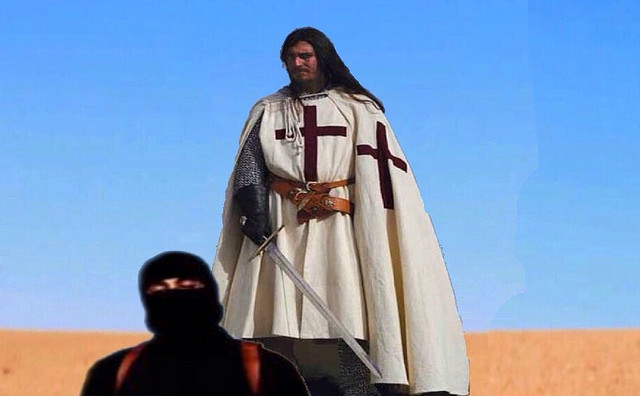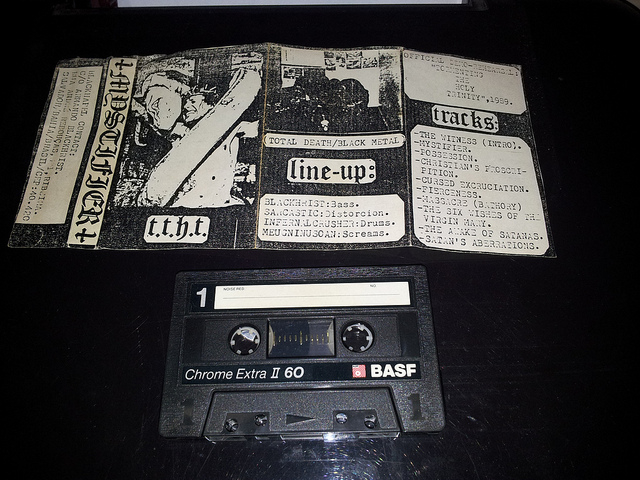Amongst all the frenzied accounting over whom to blame/credit for Donald Trump’s victory, one group has escaped notice – the metalheads. Indeed, there is no evidence that metalheads voted for (or against) Trump (if they voted at all) in greater numbers than anyone else. (More…)
Author: Keith Kahn-HarrisKeith Kahn-Harris is a London-based sociologist, teacher, writer and Jewish communal activist. He is the author of Extreme Metal: Music and Culture on the Edge and co-author of Turbulent Times: The British Jewish Community Today. He occasionally blogs at metaljew.org and his website is kahn-harris.org.
Keith Kahn-Harris is a London-based sociologist, teacher, writer and Jewish communal activist. He is the author of Extreme Metal: Music and Culture on the Edge and co-author of Turbulent Times: The British Jewish Community Today. He occasionally blogs at metaljew.org and his website is kahn-harris.org.
As was inevitable, the upcoming referendum on the UK’s membership of the EU has exposed deep divisions in the Conservative Party. For an exercise that appears to have been intended to finally allow the party to move on from its endless civil war on Europe, the referendum appears to be making matters much worse. (More…)
Someday, Lemmy will die. Maybe that day will come soon. For the last couple of years, he hasn’t been a well man. He walks with a stick, slurs his speech and his rapier wit seems diminished. He has even made half-hearted attempts to cut back on the booze and cigarettes. (More…)
I spend a lot of my time thinking about and writing about Jews. Much of my work takes place within the confines of the Jewish community, but I also try and engage the wider world with Jewish issues. That often leads me to publishing think pieces and reviews in a range of ‘non-Jewish’ publications such as the The Guardian, The Independent and more. (More…)
The ending of a fiction represents the point at which its essential artificiality is most acute. While individual lives do end, life itself does not end (or at least, will not end on earth for a literally unthinkably long time). When a fiction ends, it is the apotheosis of the human ability and desire to chop up the flow of time into manageably finite stories. (More…)
When I set out to do ethnographic research on extreme metal for my doctorate in the mid-1990s, it was the transgression that fascinated me. I wanted to immerse myself in a culture dedicated to musical celebrations of the dark side, that flirted with sonic oblivion, that stared into the abyss. (More…)
In my early years as a metal fan, in the 1980s and 1990s, everything was interesting. The process of musical discovery was a slow one, proceeding in fits and starts as I gradually managed to buy, copy and hear enough metal to become knowledgeable about the parameters of the genre. (More…)
It’s that time of year again. I’m being bombarded by Top Ten/Twenty/Fifty/Hundred music lists. I suppose that, as someone with a background in music scholarship and as a fairly seasoned critic, I should view them with wry amusement – sometimes scoffing at other critics’ choices, sometimes sagely agreeing. But that’s never been how I react to them. (More…)
What would it look like if metal culture abandoned music? How necessary in fact is music to metal? This might seem absurd, but there are precedents of a sort. Both goth and punk are only partially dependent on music. Music is one element of goth culture, alongside fashion, literature, visual arts and film. (More…)
Crisis-period metal is metal at its most innovative. Artists are taking the genre in many different directions, some of which, as in post-metal, are challenging the very nature of what metal is and could be. But what I’m imagining is something more thoroughgoing and systematic. Innovation on its own is not enough to keep metal alive. (More…)
One way of tackling the metal crisis is to reintroduce scarcity. To some extent this is already happening. The stubborn persistence of vinyl and cassettes in metal derives from a desire to maintain scarcity. The reduction al absurdo of this tendency is releasing music in near-obsolete formats such as floppy diskettes. However, on its own, this strategy is too limited though, as not only are many such releases simultaneously released digitally. (More…)
If metal has become incoherent, there’s little sign that it is dying. Yet there are two dangers that are beginning to loom large over it. The first is that metal gradually dissipates. The music moves in a thousand different directions, by a thousand different artists. Any sense of it as an overarching idiom, a cultural identity, and a social space is lost. (More…)











